

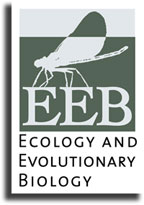
Ecology of stream invertebrates and algae, stream disturbance ecology, aquatic conservation biology
I study how organisms survive and recover from disturbance and am currently looking at how algae in protective refuges subsidize grazer production and algal recovery from floods in streams. I also work on the distribution, ecology, and conservation biology of the fauna of springs.
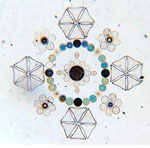
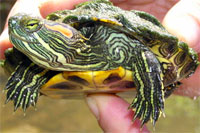
ari at ou.edu
Neuronal mechanisms of behavioral choice and movement control
I conduct electrophysiological, neuroanatomical, and pharmacological experiments on the turtle spinal cord control of swimming and scratching, to address how the nervous system selects and generates an appropriate behavior for each circumstance an animal faces.
rbroughton at ou.edu, Website
Molecular evolution, phylogenetics, population genetics, comparative genomics
My reasearch employs evolutionary patterns in DNA sequence data to investigate processes that generate and maintain biological diversity. This includes fundamental questions related to population divergence and adaptation, patterns of phylogenetic relationships, and the evolution of genomes in fishes.

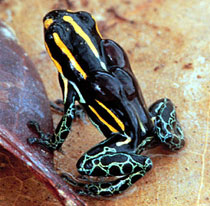
caldwell at ou.edu Website
Amazonian amphibian diversity; Brazilian cerrado amphibian diversity; amphibian ecology and behavior; biology of dendrobatid frogs
My research encompasses studies of amphibian and reptile biodiversity in the Brazilian Amazon rainforest and cerrado regions. I am interested in the use of comparative methods to interpret the evolution of life history and behavioral traits in anurans, especially in dendrobatid frogs. Recent dendrobatid phylogenies have revealed multiple transitions from crypsis to aposematism, providing opportunities for studying evolution of many novel traits in reproduction, predator-avoidance behavior, and diet specialization in these frogs.
acallaghan at ou.edu
Biochemistry, Physiology and Genetics of Sulfate-Reducers. Anaerobic hydrocarbon metabolism. Microbial ecology of hydrocarbon-impacted environments
The biochemistry and genetics of aerobic hydrocarbon biodegradation have been explored for more than seven decades. However, very little is known regarding the comparable activities and processes in anaerobic bacteria, which are difficult to isolate and characterize. Through the use of genomics, proteomics, metabolite profiling, and molecular tools, my research focuses on elucidating the novel biochemical reactions governing the anaerobic biodegradation of alkanes, paraffins (long-chain alkanes), and polycyclic aromatic hydrocarbons (PAHs). These studies ultimately serve as a platform for field investigations aimed toward characterizing microbial communities associated with contaminant degradation.

chilson at ou.edu Website
Atmospheric physics, radar remote sensing, precipitation studies
There exists obvious links between weather and the environment. To better facilitate our understanding of these links and the ensuing interactions, it is sometimes necessary to remotely probe the atmosphere at small spatial and temporal scales. A common theme in my research has been the development and application of new sensor technologies in order to probe the atmosphere at such scales. The focus of my studies has been on the use of clear-air and weather radars as remote sensing tools. Recently, however, I have also been exploring the use of various in-situ instruments and numerical models in my research.
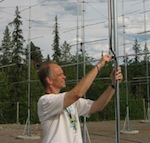
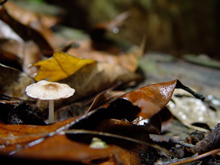
rhcichewicz at ou.edu Website
Natural products, plant, marine, and microbial natural product chemistry, fungi, myxomycetes
Research focuses on defining the chemical nature of the secondary metabolites produced by living organisms. These highly bioactive compounds serve a variety of essential functions as defensive toxins, venoms, potent chemical messengers, allelopathogenic agents, and many others.
ldeven at ou.edu
Cognitive adaptations, foraging, caching
Identifying and characterizing a priori knowledge animals possess about their environment and use to make better foraging decisions. Research is carried out with ground-dwelling sciurids in the field and laboratory.

microbial community diversity, microbial ecology of chemically impacted soil, microbial evolution: population structure, gene transfer and genetic variation, modes of speciation, Bacillus species
My research is centered on gaining a greater understanding of how microbial diversity is structured at several different levels; that is, how genetic and ecological factors affect communities, species, and populations, and how they respond as environments change. I have studied the effects of changing environments using manmade disturbances such as contamination by petroleum and salt water. Another main branch of my research focuses on gene transfer, genetic variation, and speciation in the genus Bacillus.
elisens at ou.edu Website Herbarium Website
Plant Systematics & Evolution, Biogeography, Taxonomy, Floristics
My research interests are at the interface of systematics, evolutionary biology, and biogeography with a special emphasis in the lineage formerly identified as the family 'Scrophulariaceae'. I utilize a broad range of experimental protocols to investigate phylogenetic and taxonomic relationships, biogeographic pattern, and modes of evolution among plant lineages. A special emphasis is placed on combining field, laboratory, and herbarium investigations.


fincke at ou.edu
Behavioral and evolutionary ecology
Using insect models, I investigate how intra- and interspecific interactions at the level of larvae and adults drive the evolution of reproductive behavior. Current projects include female specific polymorphisms, learned mate recognition, and consequences of forest fragmentation on neotropical insect populations.
jpgibson at ou.edu
plant reproductive biology, population genetics and mating system analysis, seed dispersal and germination
I am interested in the interaction between plant life history and population genetic diversity and structure. The primary focus of this research is to understand how unique reproductive strategies shape the levels and structuring of diversity within and among populations of species with highly fragmented distributions.

bhoagland at ou.edu
Coming soon...
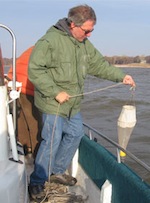
dhambright at ou.edu
Limnology and zooplankton ecology
My research is centered on the roles of consumers, particularly fish and zooplankton, in regulating freshwater community dynamics. Students currently in my lab work on a variety of research topics, including zooplankton grazing and nutrient remineralization, mercury accumulation in fishes, and zooplankton feeding behavior.
khobson at ou.edu
Entomology; behavior and ecology of insects, forest ecology, insect biodiversity, chemical ecology
I am interested in understanding the causes and ecological consequences of insect behavior. I use scolytid bark beetles in California, New Zealand and Oklahoma as a model system to examine how proximal causes, such as insect host selection decisions, can produce ultimate effects, such as bark beetle outbreaks that may kill mature trees across large forest areas.
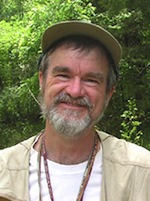
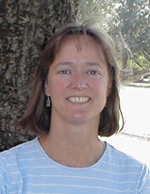
hoefnagels at ou.edu Website
Mycology, biology education
I have expertise in plant pathogenic and mycorrhizal fungi. I am also a general biology textbook author, and I am interested in classroom computer technology.
Director of the EEB Graduate Program
mkaspari at ou.edu, Website
Community ecology, macroecology, scaling, ants, litter, brown food web, tropics
Our lab addresses the basic question, "how and why do properties of ecological communities vary as you move from place to place?". We also are particularly fond of ants, and use them as model organisms to ask a variety of questions, from their physiological ecology to their impact on ecosystem function.
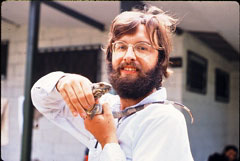
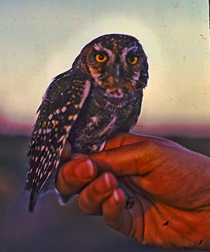
jkelly at ou.edu Website
Conservation biology, terrestrial fauna of Oklahoma, avian ecology
I study (1) the ecology and conservation of birds and (2) current and historic distributions of vertebrates in Oklahoma. I welcome inquiries from students interested in pursuing a broad range of graduate research projects as well as those that share my current research interests, which include the application of stable isotope techniques to understand the migratory ecology of songbirds and riparian zone ecology and management, particularly the impact of riparian vegetation structure on animal communities.
rknapp at ou.edu
Behavioral endocrinology, behavioral ecology, physiological ecology
My research is aimed at understanding the endocrine and other physiological mechanisms underlying variation in reproductive behavior. Currently my work is focused on understanding how hormones and energetic considerations influence the development and adult expression of alternative male reproductive phenotypes and male parental behavior in several species of fish.
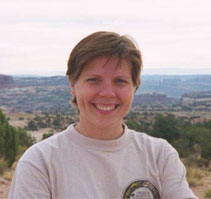
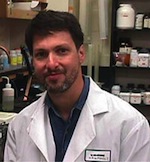
krumholz at ou.edu Website
Genetics of sulfate reducing bacteria, Microbial Ecology of a Sulfur spring, Bioremediation of Radionuclides in anoxic aquifers
Research focuses on physiology and ecology of sulfate reducing and other anaerobic bacteria. We are attempting to understand mechanisms for the natural geochemical processes carried out by anaerobic bacteria and their communities.
cmlewis at ou.edu Website
Population Genetics; Peopling of South America; Evolution of Disease Associated Genetic Variation; Anthropological Genetics
My labs address questions concerning the distribution and evolution of human genetic variation. To address these questions, I have collected and/or analyzed ancient DNA, genetic data from hypervariable mitochondrial regions, from autosomal functional regions, and a genome-wide survey of Short Tandem Repeats. Research topics include human population history, the evolution of disease associated genetic variation, and the relationship between cultural, environmental and genetic variation.
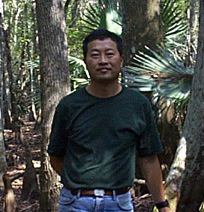
yluo at ou.edu Website
Ecosystems Ecology, Ecological Modeling, Global Change Biology
The major issues my lab is addressing are: (1) how global environmental change alters function and structure of terrestrial ecosystems and (2) how terrestrial ecosystems regulate chemical compositions (such as carbon dioxide concentration in the atmosphere and climate change.
rlupia at ou.edu
Paleobotany, palynology, paleoecology, macroevolutionary patterns, terrestrial ecosystem change
I am interested in the patterns and underlying processes responsible for the dramatic revolution in terrestrial ecosystems during the Cretaceous. Begining in the Early Cretaceous, and continuing today, flowering plants (angiosperms) and "higher" ferns exploded across the global landscape, accumulating both taxonmic (species) and morphologic (form) diversity. Flowering plants in particular gained ecological dominance in many habitats surpassing all then existing clades. Along with graduate students and collaborators, I investigate quantitiative paleoecological patterns and morphological evolution of flowering plants and ferns.
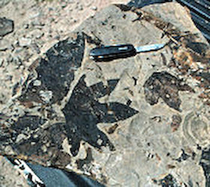

mmeo at ou.edu Website
Environmental policy analysis, science and technology policy, global environmental change, corporate environmental management
Mark Meo is Professor of Civil Engineering and Environmental Science and a Research Fellow in Science and Public Policy at the University of Oklahoma. His research interests include environmental policy innovation, technological innovation of energy systems, watershed management and decision making, and sustainable development.
nairn at ou.edu Website
Ecosystem biogeochemistry, wetlands science, ecological engineering
Bob Nairn has conducted research on created wetland structure and function, riparian restoration, wetland functional and biological assessment, rural and urban surface water quality, and bio-monitoring techniques. His current research focuses on ecosystem biogeochemistry and ecological engineering, with specific emphases on the coupled understanding of water quality improvement performance and ecological function, development of sustainable treatment designs, and materials recycling.
mamares at ou.edu
South American mammals, biogeography, deserts, conservation, ecology, and museology
I study the evolution of desert mammal communities, the taxonomy and systematics of South American mammals, and the ecology, conservation, and biogeography of mammals, with emphasis in South America.
emarsh at ou.edu
Life history evolution and ecology, community ecology
My current research examines maternal provisioning tactics in fishes (with a focus on mother-to-embryo transfer of nutrients in livebearers), effects of drought on stream fish communities, and long-term variation in structure in fish assemblages

Chair of Zoology
wmatthews at ou.edu
Fish Ecology, Ichthyology
My work focuses on stream fish community ecology, with emphasis on long-term change due to intrinsic and extrinsic factors; on the role of fish in stream ecosystems; on distributional ecology and zoogeography of freshwater fishes; and on reservoir fish ecology.
David McCauley, Assistant Professor
Zoology
dwmccauley at ou.edu
Comparative developmental biology
Research in my lab is focused on the evolution of vertebrate-specific neural crest cells. We use embryology, genetics and molecular biology tools to investigate the evolution of neural crest development. Our work focuses primarily on how the neural crest develops in a basal jawless vertebrate, the sea lamprey, and in zebrafish, a model organism that has become a critical tool in developmental biology. We are investigating how molecular mechanisms have evolved that have led to differentiation of the neural crest into derivatives such as cartilage, pigment, and much of the peripheral nervous system.
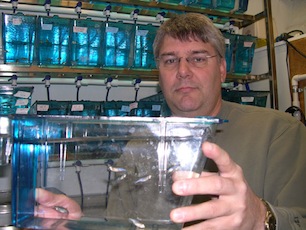
dmock at ou.edu
Behavioral ecology
I am interested in many kinds of evolutionary conflicts-of-interest, especially those concerning close kin and/or simple family structure. Some favorite topics include sibling rivalry (siblicide, begging), sexual conflict, and parent-offspring conflicts.

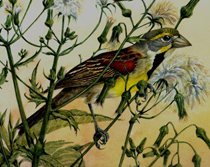
mpatten at ou.edu, Sutton Avian Research Center
Evolutionary ecology, biogeography, conservation biology
My interests are varied, but I am, in essence, an evolutionary ecologist with a bent toward quantitative ecology and biogeography. The principal driving force behind my work and a common thread in most of my publications is an abiding interest in how things work. I seek to uncover ecological mechanisms of how things came to be or why they are the way they are, whether behavioral differences in recently diverged taxa, geographic distributions of vertebrate taxa, relative influences of bottom-up and top-down effects in ecosystem control, or extrinsic factors that affect life-history evolution and persistence of populations of declining species. That said, my research interests revolve around two key fields: (a) the behavioral ecology of speciation and (b) habitat fragmentation and ecosystem control.
tray at ou.edu
Evolution, origin of complexity
I am interested in how the process of evolution generates novelty and complexity. I am using artificial evolving systems to explore the process.
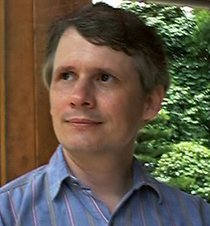
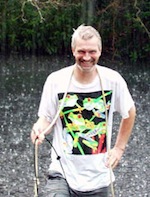
schlupp at ou.edu
Stability of gynogenetic mating systems; Evolution and maintenance of sexual reproduction; Sexual selection; Population biology of amphibians and fishes with a focus on conservation biology; Evolution of cave fish.
Research interests: My primary interest is to understand the maintenance of sexual reproduction. To address this I study a mating system in which an asexual fish and a sexual fish coexist in the same habitat. The asexual fish, the Amazon molly (Poecilia formosa) reproduces via gynogenesis, which means the need sperm to trigger embryogenesis. Sperm is provided by males of two other species, the Sailfin molly (P. latipinna) and the Atlantic molly (Poecilia mexicana), but the male genes are not used. This leads to interesting questions about male mating behavior and the stability of such gynogenetic mating systems. In addition to this I have a general interest in sexual selection. Another area of interest is the population biology fishes including conservation biology. I conducted a long term study on European Common toads (Bufo bufo). Finally, I am interested in the evolution of cave animals using a cave fish (Poecilia mexicana) as a model system.
gschnell at ou.edu
Coming soon....
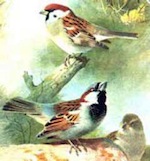
plsch at ou.edu
Vertebrate Behavioral Ecology
My general interests are in how phenotypic traits of one sex shape the optimum behavior/traits of the opposite sex. I am currently doing collaborative work which focuses on the relationships between male participation in parental care and sexual selection in a locally abundant passerine.
wshelton at ou.edu
Fisheries, Reproductive Manipulation, Aquaculture
Fish Culture: Management of fish reproduction through artificial propagation, hormone induced sex reversal, and ploidy manipulations. The applications have been to aquaculture and control of unwanted reproduction in exotic fishes. Fishery Biology: Ecological studies have been conducted principally in large rivers and large reservoirs. The primary emphasis has been on reproductive biology, growth predator/prey interactions and recruitment in relation to population biology. Evaluation of sampling methodology has been a focal element.
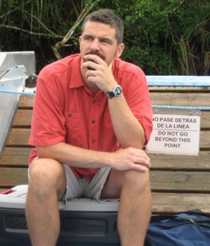
Microbial ecology, adaptation to low-oxygen environments, cultivation and study of novel microbes
My research involves the use of both traditional and cultivation-independent molecular approaches to study the diversity of microbial communities, focusing on the "uncultivated majority" of microorganisms in global nutrient cycling. As a result of this work, we are now studying several novel strains of Acidobacteria and Verrucomicobria, two bacterial phyla that are prevalent in many environments but have few cultured representatives. Another focus of my research is on the ecology and evolution of bacteria that are adapted to environments with low oxygen fluxes. The prevelance of low oxygen flux in terrestrial and aquatic environments, the diverse, largely uncultured microbial populations adapted to these conditions, and their potential roles in these ecosystems offer great potential for discovery.
Botany/Micro rtanner at ou.edu Website
Clostridia, acetogens, wastewater
Current research interests include water/wastewater microbiology (identification of two new indicator bacteria), and novel anaerobes (clostridia and SRB) in bioremediation and industrial microbiology.
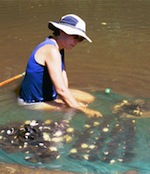
cvaughn at ou.edu Web Page
Stream ecology, conservation biology
My students and I are pursuing a variety of basic and applied ecological questions using stream benthic organisms as models. My current work uses the freshwater mussel guild as a model system to study species functional roles in ecosystems and how roles vary with environmental context.
vitt at ou.edu
Historical ecology, community ecology, reptile biology
My research centers on the biology of reptiles, especially squamates. Altthough I dabble in behavioral ecology, functional morphology, life history evolution, and ecophysiology, my primary interests at the moment are in untangling historically derived ecological traits (historical ecology) from more recently derived ecological traits (community ecology) in an attempt to understand why communities have the structure that we observe.
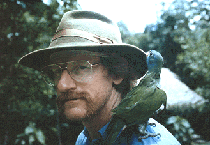
Director of Oklahoma Biological Station
ljweider at ou.edu Website
Evolutionary ecology, ecological genetics, aquatic ecology
My research interests center on studying the mechanisms (e.g. selection, migration) that influence the maintenance of genetic diversity in natural populations, using the freshwater zooplankter, Daphnia, as my primary model organism. I use a variety of molecular (e.g. DNA sequencing) and ecological (e.g. life-table, selection experiments) techniques to address questions in evolutionary ecology.
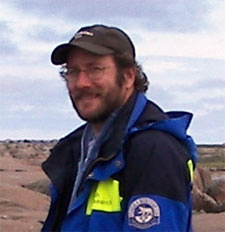
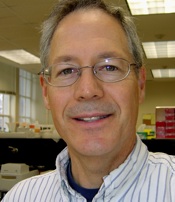
gwellborn at ou.edu Website
Ecology, evolution, and behavior
My research examines the evolutionary, ecological, and behavioral mechanisms that generate and maintain biological diversity. My current work evaluates these processes in a species complex of freshwater.
xiangming.xiao at ou.edu
Ecosystems ecology, remote sensing, global change biology
My research interest includes global-scale land use and land cove change, biogeochemical cycles, agriculture, and ecology and epidemiology of infectious diseases. A variety of research tools are employed in our studies, including satellite remote sensing and modeling.


myuan at ou.edu Website
Temporal GIS, geographic representation, spatiotemporal analysis and modeling
My research centers on integration of space and time across multiple scales to identify environmental factors and driving forces to geographic processes and discern geographic relationships and interactions.